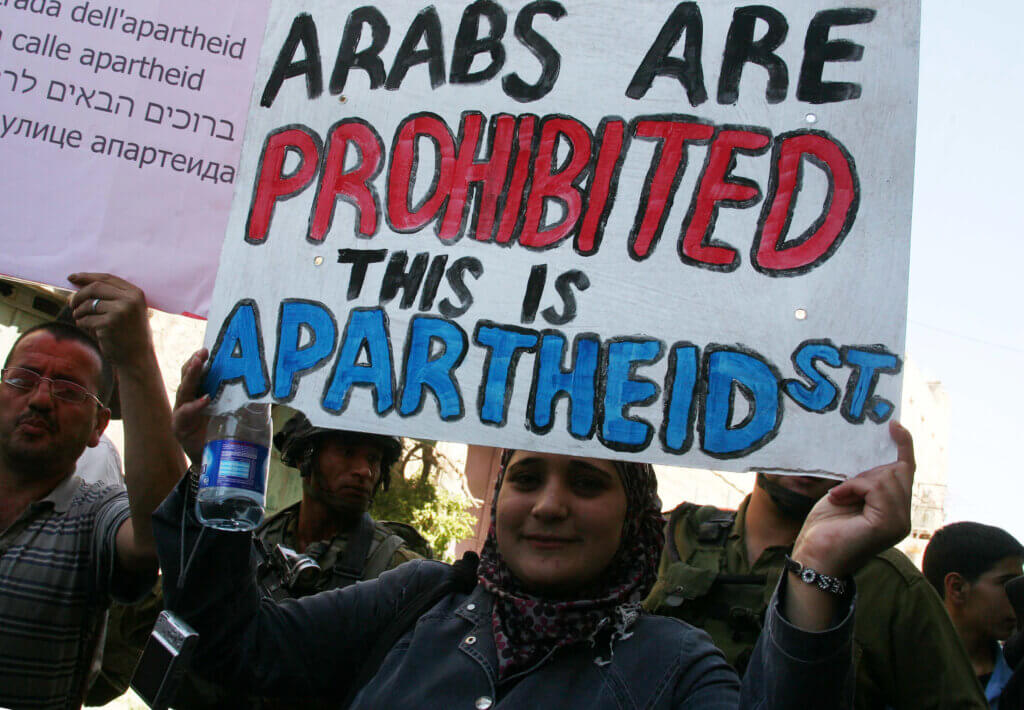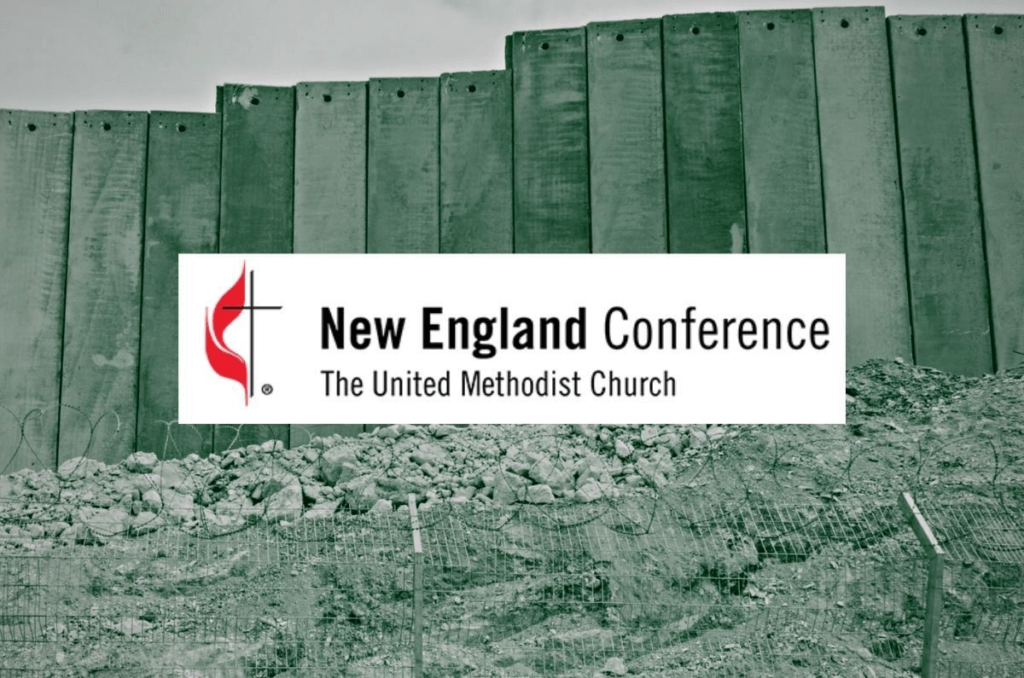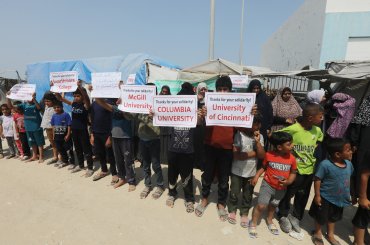The New England Conference of the United Methodist Church condemned Israel’s apartheid system June 11 by an 88 to 12 percent vote (out of 354 votes), becoming the first unit of that United Methodist denomination to address the apartheid issue.
The move comes at a key moment in the larger movement by Christian churches to attack by name the apartheid treatment of Palestinians. The Presbyterian Church will vote on their apartheid “overtures” in the first week in July, while the Episcopal Church is expected to vote on apartheid the following week.
The New England United Methodists’ resolution spelled out Israel’s wrongdoing in blunt language and at length. “We wanted to make sure everyone knew exactly what we were condemning and the legal underpinnings of the analysis,” said Bill Aldrich, the chairman of the conference’s Divestment Task Force, which proposed the resolution.
So, the resolution states, “Within Israel and in the Occupied Palestinian Territories the Israeli government has established its control over the lives of Palestinians with discriminatory laws and policies specifying in part where they can live, whom they can marry, where and when they can travel short distances, which roads they can drive on, how much water they can use, when they can access their own farms, what land they can purchase, which justice system they are subject to, whether they will receive due process, and what kinds of punishment they will receive, and Israel has seized the vast majority of the land and natural resources of the Palestinians.”
Regarding the plight of West Bank Palestinians, the Methodists voted to say, “Palestinians in the occupied territories have lived under Israeli military law for generations without any protected civil rights, and six Palestinian human rights and civil society groups have recently been labeled terrorist organizations in an effort to inhibit Palestinian resistance to oppression.”
Anticipating possible objections or misunderstandings, the resolution noted that “apartheid is not defined by the conditions that existed in South Africa, but by the United Nations Convention on Apartheid of 1973 and the Rome Statute of the International Criminal Court of 1993, adding that “race in international law is defined not as a biological concept, but as a social concept, applying to “race, color, descent, or national or ethnic origin.”
The resolution explicitly rejected “any attempts to equate criticism of Israel with antisemitism, in that such empty charges of bigotry seek to protect Israel from responsibility for its policies and actions, discourage others from standing with a suffering and oppressed people, and [have the effect of] dangerously weaken[ing] the vital work of identifying and opposing real antisemitism in our society.”
Discussing the issue of Israel’s intent to maintain an apartheid state (a legal requirement to find the crime of apartheid), the resolution points out that Israel “blatantly codified a racist governing principle in the Nation State Basic Law of 2018, which grants self-determination exclusively to the Jewish citizens of Israel; Jewish supremacy was thereby made a binding constitutional principle and all state institutions must now promote Jewish supremacy.”

Finally, the United Methodists made clear that their opposition to apartheid, wherever it may exist, dates back to the 1980s, when “the Church forcefully declared its opposition to the crime of apartheid, calling it a “heresy” and “a sin” that must be “condemned unequivocally – within Southern Africa and neighboring countries and throughout the world.”
Aldrich said that at least one other United Methodist conference is likely to act against Israel’s apartheid, but that the larger Church votes only on a global level, not a national one, on resolutions. The prospects of a global condemnation are not strong, he added. The very numerous United Methodists of Africa have not been sympathetic to the Palestinians, probably because Palestinians are mostly Muslim, he said. Also, conferences in the Southeastern U.S. have shown less support, he added.
###
The full text of the resolution can be found here, on page 101.
Excerpt of the press release from the New England Conference, United Methodist Church:
On Saturday, June 11, 2022 in Manchester, NH the New England Conference of The United Methodist Church overwhelmingly passed a resolution entitled “Identifying and Opposing Apartheid in the Holy Land.”
The vote was 88% “yes” and 12% “no” with 354 people voting in the combined in-person/Zoom meeting. The conference includes all of the New England states with the exception of the western half of Connecticut.
The resolution resolved “that the New England Annual Conference…recognizes that the Israeli government has established a system of apartheid, affirms that apartheid is antithetical to the Gospel message, and opposes this injustice and oppression in whatever form it presents itself.”
It went on to also state “that the Conference calls on the U.S. government to condition U.S. funding to Israel upon Israel’s willingness to dismantle its apartheid system and implement all the rights due to Palestinians under international law.”
And it ended by urging “all United Methodist clergy and laity: a) to listen to the voices of Palestinians regarding their situation…and b) to join with and support all persons of good will who are seeking justice for all people in the Holy Land.”
The resolution, which originated with the conference’s Divestment Task Force, was prefaced with a number of statements about the reality of life for Palestinians in the Holy Land and noted that a number of human rights organizations have issued reports identifying Israel’s system of apartheid, including B’Tselem in 2021 (Israel’s most eminent human rights organization), Human Rights Watch in 2021, and Amnesty International in 2022. ..
Other denominations are moving in the same direction regarding Israeli apartheid. Most notably the General Synod of the United Church of Christ condemned it, becoming the first mainline denomination to use the term.


